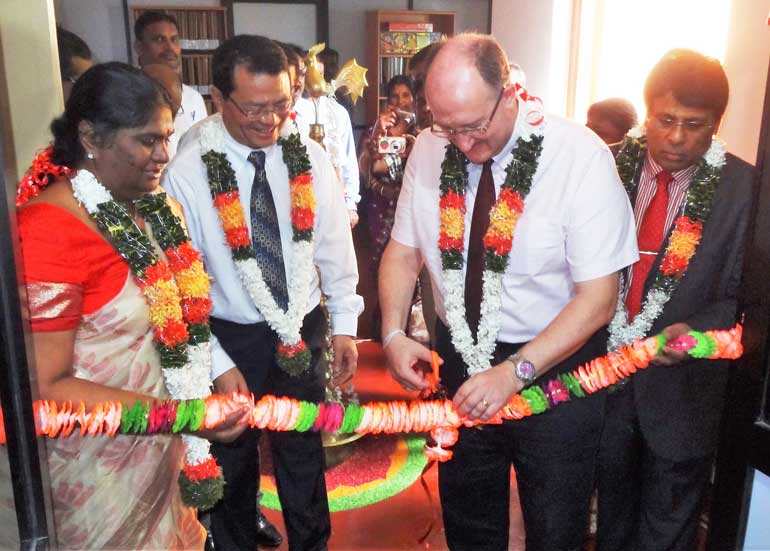Context: The largest sectors of Sri Lanka’s economy are agriculture, services and the manufacture of consumer goods (light industry). Industries such as tourism, banking, finance and retail, come under the umbrella of services and represent roughly 60 per cent of Sri Lanka’s gross domestic product (GDP). This sector also employs 45 per cent of the workforce. Agriculture accounts for roughly 21 per cent of GDP and 38 per cent of all labour, while light industry accounts for approximately 19 per cent of GDP and 17 per cent of the workforce. Swift development in these industries and in the Sri Lankan economy, has increased labour demand and created types of employment that were previously unavailable to residents. Despite this economic success, youth unemployment reached 16.7 per cent in 2015, which was four times higher than the national average. Roughly 185,000 school graduates enter the labour force, each year. However, these students leave school with an education that has, often, not equipped to exploit the employment opportunities available in Sri Lanka’s modern labour market.
Implementation: The Department of Manpower and Employment administers a variety of programmes to help youth identify their desired career and develop the skills to achieve their professional goals. For example, the department advertises job opportunities and labour market trends, supports career development services and training, and administers the Public Employment Service (PES). By visiting local PES centres and/or registering on the affiliated Jobsnet website, youth can receive labour market information and career guidance at their convenience. Throughout Sri Lanka, the department operates 25 divisional offices to identify job and training opportunities and update information on Jobsnet.
Main Challenges: Both job seekers and providers have expressed issues with PES. In general, the concerns of job seekers pertain more to career development than job availability. They request that the department post more information about opportunities for career guidance as well as training in entrepreneurship and “soft skills,” such as emotional intelligence and communication skills. Job providers have experienced difficulty in identifying suitable candidates using Jobsnet’s search function, as the descriptions provided by registered users are not standardized. Also, job providers have indicated that they have regularly received applications from the same locations, where PES centres and access to information communication technology (ICT) are more readily available.
Results: Since its launch, Jobsnet has registered 16,530 job seekers. To improve PES services for these job seekers, the department established monitoring and evaluation methods, which include administering a biannual labour demand survey. The department also conducts industry surveys that give job seekers more accurate information about the skills and qualifications they must obtain to fill positions in specific industries. Using survey data, Jobsnet has published profiles on such industries as construction and health care. The department has also developed partnerships to expand PES centres. With the support of the European Union and International Labour Organization, PES centres have been opened in Vavuniya, Mannar and Batticaloa.
Moving Forward: The department should focus on establishing PES centres, nationwide. The information and opportunities Jobsnet offers are inaccessible to many communities that lack ICT. While opening new PES centres is the fastest and most efficient way of extending the benefits of online employment services, it also helps the department identify the specific challenges youth face in different communities and tailor PES services to improve their employability. At the same time, job providers are to receive a broader selection of job candidates as requested by them.
Replicability: A core aspect that has contributed to the success of this initiative is that PES offers the dual benefit of reducing youth employment, while also developing ICT skills. In addition to supporting employment searches, operating ICT is a critical function for most positions that are available in the Sri Lankan labour market. Moreover, when teaching a broader cross-section of youth to operate ICT, it is important to build their confidence in using this technology at the workplace.
References:
Department of Census and Statistics. Quarterly Report of the Sri Lanka Labour Force
Survey. Battaramulla, Ministry of National Policies and Economic Affairs, 2015.
Department of Manpower and Employment. “Overview.” Manpower, Planning,
Development and Research Division. Accessed 12 December 2017; Department of Manpower and Employment. “Services.” Manpower, Planning, Development and Research Division. Accessed 12 December 2017.
“EU Envoy opens public employment services centre in Batticaloa.” Daily Mirror, 24
July 2017.
Acknowledgements:
This good practice was kindly edited by Ms. Elizabeth Linklater
Project Details
Date: June 11, 2018
